Энтони Хоуп - Английский язык с Энтони Хоупом. Узник Зенды / Anthony Hope. The Prisoner Of Zenda
- Название:Английский язык с Энтони Хоупом. Узник Зенды / Anthony Hope. The Prisoner Of Zenda
- Автор:
- Жанр:
- Издательство:Литагент «Восточная книга»1243df63-7956-11e4-82c4-002590591ed2
- Год:2009
- Город:Москва
- ISBN:978-5-478-01181-9
- Рейтинг:
- Избранное:Добавить в избранное
-
Отзывы:
-
Ваша оценка:
Энтони Хоуп - Английский язык с Энтони Хоупом. Узник Зенды / Anthony Hope. The Prisoner Of Zenda краткое содержание
В книге предлагается роман Энтони Хоупа «Узник Зенды», адаптированный (без упрощения текста оригинала) по методу Ильи Франка. Уникальность метода заключается в том, что запоминание слов и выражений происходит за счет их повторяемости, без заучивания и необходимости использовать словарь.
Пособие способствует эффективному освоению языка, может служить дополнением к учебной программе. Предназначено для студентов, для изучающих английский язык самостоятельно, а также для всех интересующихся английской культурой.
Английский язык с Энтони Хоупом. Узник Зенды / Anthony Hope. The Prisoner Of Zenda - читать онлайн бесплатно ознакомительный отрывок
Интервал:
Закладка:
Since all these events whose history I have set down happened (после того, как произошли эти события, последовательность: «историю» которых я изложил; to set down – высаживать, ссаживать; записывать, письменно излагать ) I have lived a very quiet life at a small house (я живу очень спокойной жизнью в маленьком домике) which I have taken in the country (который я приобрел за городом). The ordinary ambitions and aims of men in my position (обычные стремления и цели людей моего круга: «положения»; ambition – честолюбие; стремление, цель ) seem to me dull and unattractive (кажутся мне скучными и неинтересными: «непривлекательными»).

“I should know the photograph from the picture: the picture’s very like the photograph, but – ”
“Well?”
“It’s more like you!” said my brother.
My brother is a good man and true – so that, for all that he is a married man and mighty fond of his wife, he should know any secret of mine. But this secret was not mine, and I could not tell it to him.
“I don’t think it’s so much like me as the photograph,” said I boldly. “But, anyhow, Bob, I won’t go to Strelsau.”
“No, don’t go to Strelsau, Rudolf,” said he.
And whether he suspects anything, or has a glimmer of the truth, I do not know. If he has, he keeps it to himself, and he and I never refer to it. And we let Sir Jacob Borrodaile find another attache.
Since all these events whose history I have set down happened I have lived a very quiet life at a small house which I have taken in the country. The ordinary ambitions and aims of men in my position seem to me dull and unattractive.
I have little fancy for the whirl of society (меня мало интересует круговорот общественной /жизни/; to have a fancy for smth. – любить что-л., увлекаться чем-л. ), and none for the jostle of politics (и /я совершенно равнодушен/ к политической борьбе; jostle – толчок, столкновение; толкотня, давка ). Lady Burlesdon utterly despairs of me (леди Берлисдон совершенно во мне разочаровалась; to despair – отчаиваться, терять надежду ); my neighbours think me an indolent, dreamy, unsociable fellow (мои соседи считают меня ленивым, мечтательным, замкнутым человеком; unsociable – нелюдимый, необщительный; society – общество; общение ). Yet I am a young man; and sometimes I have a fancy (однако я еще молод; и иногда я воображаю; fancy – фантазия, воображение ) – the superstitious would call it a presentiment (суеверные люди назвали бы это предчувствием) – that my part in life is not yet altogether played (что моя роль в жизни еще не до конца: «не совсем» сыграна); that, somehow and some day, I shall mix again in great affairs (что каким-то образом однажды я снова вмешаюсь в великие события; to mix – смешивать; to mix in – вмешиваться, ввязываться; affair – дело; событие, история / разг. /), I shall again spin policies in a busy brain (я снова буду плести хитроумные интриги; policy – политика; хитрость; busy brain – деятельный ум ), match my wits against my enemies’ (состязаться умом со своими врагами; to match – подходить под пару, соответствовать; противостоять, состязаться ), brace my muscles to fight a good fight and strike stout blows (напрягать свои мускулы, чтобы храбро сражаться и наносить сильные удары). Such is the tissue of my thoughts as, with gun or rod in hand (такие меня посещают мысли: «таково сплетение моих мыслей», когда с ружьем или удочкой в руке; tissue – ткань; паутина, сплетение; rod – ветка, прут; удочка, удилище ), I wander through the woods or by the side of the stream (я брожу по лесу или по берегу реки; side – сторона; берег ). Whether the fancy will be fulfilled, I cannot tell (осуществится ли эта фантазия, я не могу сказать; to fulfil – выполнять; осуществлять ) – still less whether the scene that, led by memory, I lay for my new exploits will be the true one (не говоря о том, станет ли сцена, которую, руководствуясь памятью, я определил для своих будущих подвигов, реальной; to lay – класть, положить; помещать ) – for I love to see myself once again in the crowded streets of Strelsau (потому что мне нравится снова видеть себя на переполненных улицах Стрелсо), or beneath the frowning keep of the Castle of Zenda (или под грозной башней замка Зенды; frowning – хмурый; грозный, угрожающий ).

I have little fancy for the whirl of society, and none for the jostle of politics. Lady Burlesdon utterly despairs of me; my neighbours think me an indolent, dreamy, unsociable fellow. Yet I am a young man; and sometimes I have a fancy – the superstitious would call it a presentiment – that my part in life is not yet altogether played; that, somehow and some day, I shall mix again in great affairs, I shall again spin policies in a busy brain, match my wits against my enemies’, brace my muscles to fight a good fight and strike stout blows. Such is the tissue of my thoughts as, with gun or rod in hand, I wander through the woods or by the side of the stream. Whether the fancy will be fulfilled, I cannot tell – still less whether the scene that, led by memory, I lay for my new exploits will be the true one – for I love to see myself once again in the crowded streets of Strelsau, or beneath the frowning keep of the Castle of Zenda.
Thus led, my broodings leave the future, and turn back on the past (направленные таким образом, мои размышления = думы покидают будущее и поворачиваются назад к прошлому). Shapes rise before me in long array (видения встают передо мною длинной чередой; shape – форма; призрак; array – строй, построение ) – the wild first revel with the King, the rush with my brave tea-table (та первая бурная пирушка с королем, прорыв с моим доблестным чайным столиком), the night in the moat, the pursuit in the forest (ночь во рву, погоня в лесу): my friends and my foes, the people who learnt to love and honour me (мои друзья и мои враги, люди, которые научились любить и почитать меня), the desperate men who tried to kill me (головорезы: «отчаянные люди», которые пытались убить меня). And, from amidst these last, comes one who alone of all of them yet moves on earth (и среди этих последних приходит тот, кто единственный из всех них все еще ходит по земле), though where I know not (хотя я не знаю где), yet plans (as I do not doubt) wickedness (/и/ все еще затевает (в чем я не сомневаюсь) какие-то злодейства), yet turns women’s hearts to softness and men’s to fear and hate (все еще заставляет женские сердца таять, а мужские – бояться и ненавидеть; to turn – поворачивать; превращать, изменять; softness – мягкость ). Where is young Rupert of Hentzau (где /сейчас/ Руперт из Хенцо) – the boy who came so nigh to beating me (парень, который чуть не победил меня; nigh – близко, рядом; почти; to beat – бить, ударять; победить, превзойти )? When his name comes into my head (когда мне в голову приходит его имя), I feel my hand grip and the blood move quicker through my veins (я чувствую, как мои кулаки сжимаются, и кровь в моих венах бежит быстрее): and the hint of Fate – the presentiment – seems to grow stronger and more definite (и намек Судьбы – предчувствие – кажется, становится сильнее и определеннее), and to whisper insistently in my ear (и настойчиво шепчет мне в ухо) that I have yet a hand to play with young Rupert (что мне еще предстоит сыграть партию с юным Рупертом); therefore I exercise myself in arms, and seek to put off the day (поэтому я упражняюсь /во владении/ оружием и пытаюсь отсрочить тот день; to seek to do smth. – пытаться сделать что-л. ) when the vigour of youth must leave me (когда энергия молодости должна оставить меня).

Thus led, my broodings leave the future, and turn back on the past. Shapes rise before me in long array – the wild first revel with the King, the rush with my brave tea-table, the night in the moat, the pursuit in the forest: my friends and my foes, the people who learnt to love and honour me, the desperate men who tried to kill me. And, from amidst these last, comes one who alone of all of them yet moves on earth, though where I know not, yet plans (as I do not doubt) wickedness, yet turns women’s hearts to softness and men’s to fear and hate. Where is young Rupert of Hentzau – the boy who came so nigh to beating me? When his name comes into my head, I feel my hand grip and the blood move quicker through my veins: and the hint of Fate – the presentiment – seems to grow stronger and more definite, and to whisper insistently in my ear that I have yet a hand to play with young Rupert; therefore I exercise myself in arms, and seek to put off the day when the vigour of youth must leave me.
One break comes every year in my quiet life (один раз в год в моей спокойной жизни происходит перемена; break – пролом, брешь; внезапная перемена ). Then I go to Dresden, and there I am met (тогда я еду в Дрезден, и там меня встречает) by my dear friend and companion, Fritz von Tarlenheim (мой дорогой друг и товарищ Фриц фон Тарленхайм). Last time, his pretty wife Helga came (в последний раз приезжала его хорошенькая жена Хельга), and a lusty crowing baby with her (а с нею – здоровый агукающий малыш; to crow – кукарекать; издавать радостные звуки / о младенце /). And for a week Fritz and I are together (неделю мы с Фрицем проводим вместе), and I hear all of what falls out in Strelsau (и я слушаю о том, что происходит в Стрелсо; to fall out – выпадать; случаться ); and in the evenings, as we walk and smoke together (а по вечерам, когда вместе гуляем и курим), we talk of Sapt, and of the King, and often of young Rupert (мы беседуем о Сэпте, о короле и частенько о молодом Руперте); and, as the hours grow small, at last we speak of Flavia (а когда уже далеко за полночь, мы говорим о Флавии; small hours – предрассветные часы ). For every year Fritz carries with him to Dresden a little box (ибо каждый год Фриц привозит с собой в Дрезден небольшую коробочку); in it lies a red rose, and round the stalk of the rose (в ней лежит красная роза, а вокруг черенка розы) is a slip of paper with the words written: “Rudolf – Flavia – always (обернута узкая полоска бумаги с написанными на ней словами: «Рудольф – Флавия – навсегда»).” And the like I send back by him (и такую же /розу/ я посылаю с ним назад). That message, and the wearing of the rings (это послание и кольца, которыми мы обменялись: «и ношение колец»), are all that now bind me and the Queen of Ruritania (вот все, что связывает меня теперь с королевой Руритании). Far – nobler, as I hold her, for the act – she has followed (еще более благородная, как я считаю ее за этот поступок, она последовала туда: «так далеко»; to hold – держать; полагать, считать ) where her duty to her country and her House led her (куда вел ее долг перед своей страной и своим родом; to lead ), and is the wife of the King (и /теперь/, будучи женой короля), uniting his subjects to him by the love they bear to her (объединяет с ним его подданных любовью, которую они испытывают к ней; to bear – нести, носить; питать, таить ), giving peace and quiet days to thousands by her self-sacrifice (даря мир и покой тысячам /людей/ за счет своего самопожертвования).
Читать дальшеИнтервал:
Закладка:
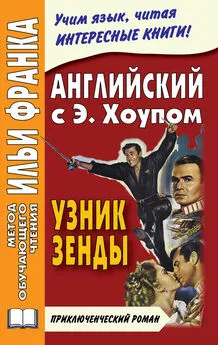
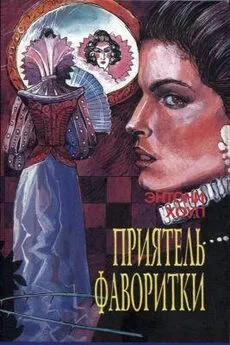
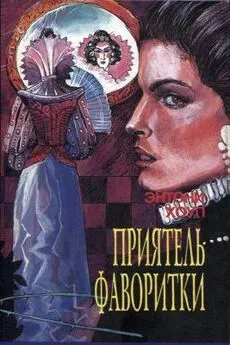
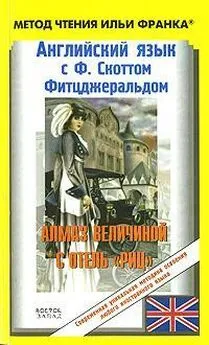
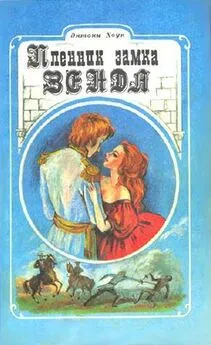
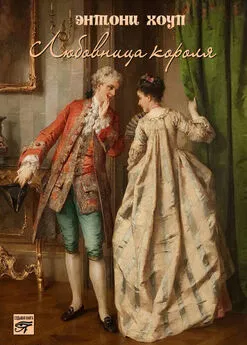
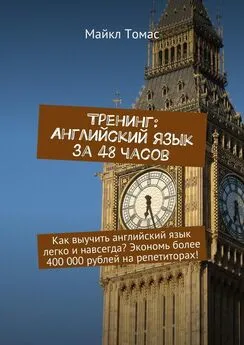
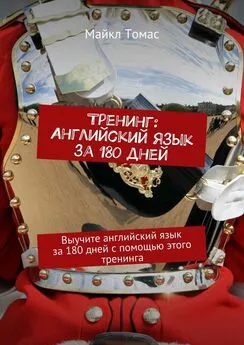
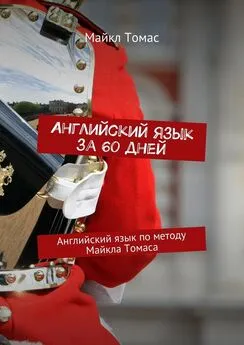
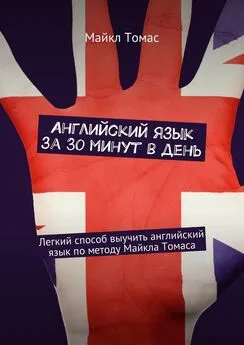
![Энтони Хоуп - Пленник Зенды. Месть Руперта [сборник]](/books/1090466/entoni-houp-plennik-zendy-mest-ruperta-sbornik.webp)